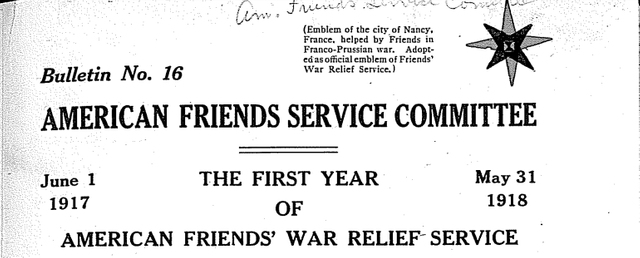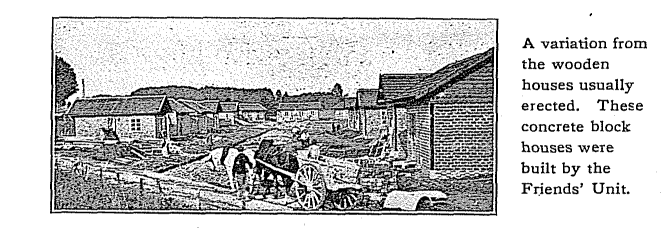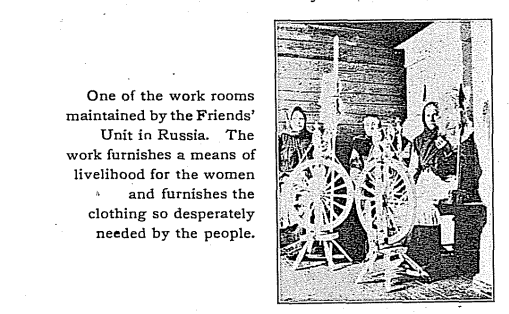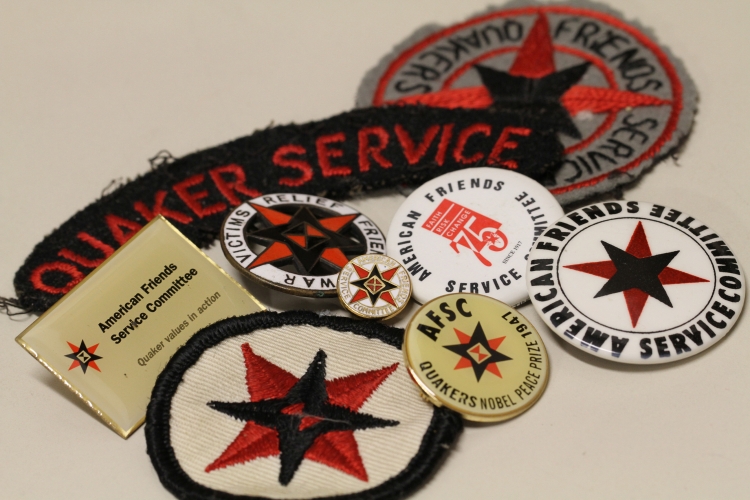Philadelphia Pacifists Abroad: The American Friends Service Committee in Russia 1918
Not all Americans supported the United States' entrance into World War I. Based in Philadelphia, members of the Religious Society of Friends, better known as Quakers, founded an organization to serve the world peacefully during World War I. The organization called the American Friends Service Committee (AFSC) was created as a place for conscientious objectors as an alternative to military service. The actions of the AFSC offer an interesting perspective from which we can #explore1918 and learn about #humanitarians

Where did they work?
The AFSC worked in areas of Europe that were heavily impacted by the war. These Philadelphia Quakers traveled to France and Russia to distribute clothes and food in areas of famine. Russia was in the midst of the fallout of the Russian Revolution and the new Soviet Union was challenged by famine and post-war poverty.

How did they work?
Because the Quakers were known world-wide as pacifists, they were able to gain access to countries like the Soviet Union at a time when Americans were generally not allowed to enter. The AFSC cooperated with local authorities, other international organizations like the Red Cross, and other pacifist groups like the Mennonites and Brethren. The AFSC additionally sent representatives from Philadelphia to work in areas like Buzuluk, Soviet Union and Nancy, France.

Why does it matter?
The American Friends Service Committee was one of the first international aid organizations. It quickly gained a reputation for the work that it did abroad and gained status as an important global link. After World War I, the AFSC continued to work in Europe, especially in post-war Germany, the Spanish Civil War, and through World War II. In 1947 the AFSC was awarded to the Nobel Peace Prize in recognition of humanitarian work. Today, the AFSC star logo is well-recognized world-wide and visible in countries from North Korea to Haiti.

Source: 1
100% of the SBD rewards from this #explore1918 post will support the Philadelphia History Initiative @phillyhistory. This crypto-experiment conducted by graduate courses at Temple University's Center for Public History and MLA Program, is exploring history and empowering education. Click here to learn more.
I recently passed the AFSC building in Philadelphia and had my curiosity piqued. Thanks for this informative post!
They have a great archive if you are ever looking for a research topic!
Good intro to the subject. Do you have anything on the origins of the "conscientious objector" status? Did it originate during WWI? Any idea of how many people claimed CO status then? Or since?
I don't have any hard numbers for you, but my understanding is the CO status originated during WWI. COs were still made to serve US interests abroad, hence organizations like the AFSC. Those who refused to serve the US alongside the military in a non-fighting role were imprisoned.
I'd like to read more about those who avoided mandatory conscription, including those who bought their way out as far back as the Civil War.
Thanks for introducing me to the AFSC. Was the organization active during the debate over U.S. entry into the League of Nations?
Yes, the AFSC was heavily involved in all movements towards international cooperation. They supported the League of Nations in refugee aid after World War I, despite the United States refusal to join.